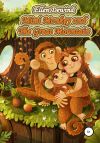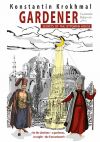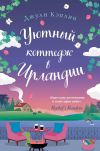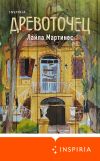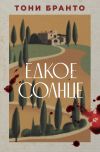Текст книги "Khon Yush. Way From the Ob"
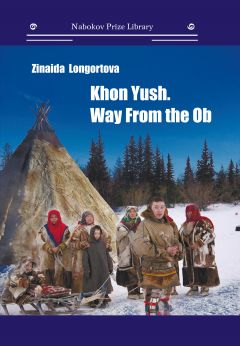
Автор книги: Зинаида Лонгортова
Жанр: Историческая литература, Современная проза
Возрастные ограничения: +16
сообщить о неприемлемом содержимом
Текущая страница: 5 (всего у книги 14 страниц) [доступный отрывок для чтения: 5 страниц]
From the front
They say that the best people die first, but people die indiscriminately. A little earlier, a little later – there is probably no difference. The main thing is not who is the first to die, but what a person did in his short life, what trace he leaved for his descendants. Is it the mother of mothers Kaltashch who writes your fate or are you the one who chooses his path – who knows?
Soon, Kurtan iki returned from the front, wounded but alive. People were happy about his return, invited him to visit, everyone wanted to hear the news about their relatives. The soldier, having been to enough people, enjoying his home, finally went to the office to officially report on his arrival. Kurtan iki became even more embittered. He saw with his own eyes hundreds and hundreds of dead fellow soldiers, he saw human blood. There was not enough food at the front – so now Kurtan iki demanded from all children and women to fulfil and supercede the food plan by any means.
«You must feed the soldiers! They defend our motherland! They are dying!» He shouted out difficult Russian words. «And you are here in the rear. At the front, I didn't see any of your fish in the cauldron, only porridge and stew. Soldiers are fed from other regions. So what are you doing here in the rear?»
The Chair appointed him as a foreman for the teenage fishermen.
Kupia and Volyakshchi, Khutline's sons, went on the first Kurtan iki's fishing trip after the front. Quickly throwing the net into the dark waters of the Ob, they threw the end of the rope tied to the buoy. And just like adult, experienced fishermen, prudently determining the direction of the wind, they sent the boat to the first buoy, shining from afar like red ocher. They took turns rowing along the river, guiding the boat in the right direction. The main thing was that the net did not get entangle in the water whirlpool. Kurtan iki sat in the middle of the kurotava, smoking his pipe and looking around the river. With his side view he watched how dexterously the boys coped with flowing nets: even adults couldn't always cope with the tackle laden with heavy fish. It was necessary to monitor the flow and see that coarse net was not tangled, otherwise you could be left without a catch. Even adult back sometimes cannot stand pulling out a heavy net, not to mention 10 or 12-years-old boys. Having sailed to the willow twigs, which marked the end of the float, Kurtan iki jumped up and picked up the ocher buoy:
«It's been a while since I went afloat! How I missed the river, the fishing. Let me take out the net!» And, without waiting for an answer, he began to pull out the implements.
After two meters, the soldier was already unraveling the first fish entangled in the net. The boys took out a knife for two, salt and began to cut the muksun to later make narkhul. There were a lot of fish, the whole catch box was full. Stretching out the net, the man, satisfied, sat down on the stern of the kayak swaying on a light wave, and stretched out his legs:
«I got out of fishing. My legs went numb and my hands are tired, as if they are not mine,» he rubbed his palms, «I got used to holding a rifle instead.»
«Aka! Let's eat fish,» the boy invited him. Nodding at the neatly crafted narkhul, Kupya pushed the fattest pieces to Kurtan iki.
Kurtan iki glanced at the fish and began to eat without words. He ate greedily, quickly cutting pieces of a juicy, fresh, glossy grease narkhul at the very lips. It was evident that the soldier really missed his native food. With his greasy hands he sought out the tasty parts, leaving lean pieces to the younger fishermen…
Grabbing narkhul with his teeth, he deftly cut off large shams of muksun. He swallowed in a hurry, almost without chewing, just like the three-headed cannibal Mek iki, a character from Khanty tales Anshem iki told about. The main fishermen only got two pieces from the big muksun. After eating, Kurtan iki stroked his stomach, wiped his greasy mouth with his sleeve, and, pleased with himself, burped loudly.
Khutline's sons, having tied a pebble to the muksun bones, lowered them into the water. Having cleaned up the place where they ate, they took up the oars. Kurtan iki looked at the boys thoughtfully with a kind of impudent grin which made them embarrassed. They tried not to look at the man. There was intense silence in the boat. Even a surge of oars seemed threatening.
On the shore, having handed over the fish, Kupia, Volyakshchi and Kurtan iki went home.
In the evening, the entrance canopy of Khutline's house opened. Kurtan iki entered carefully, stealthily, like a shaggy wolverine. The fire shook with fear and trembled.
The man went into the house and sat on the place of honor like a host. Three children clenched at the predatory wolverine gaze. The hostess bustled around the fire, moving a smoked kettle to the hot coals. She pushed a dining table at the feet of her unexpected guest, silently began to cover tea devices, put down berries and, after pouring tea, bitterly said:
«Now we have nothing but berries!»
Kurtan iki, sipping tea infused with herbs, spoke sharply:
«Your sons eat state fish, which should be sent to the front. Soldiers die in war defending you. And you take their piece, steal behind the backs of the authorities. Do you know what will happen if I go to the office and tell them everything? Your son will be taken to prison.»
He could see the woman shrink into a lump:
«Do I feed my children with one fish? They will starve to death, their father…»
«Their father is a shaman! Everyone knows this, everyone remembers how shamans were taken to prison!» Kurtan iki shouted. «Your children will be sent there too.»
«Khanmem Iki! Don't say anything to the authorities!» The woman begged.
«I'm not a relative of you!»
A heavy, eerie silence reigned in the house. The children did not seem to breathe, only a frightened crackling of flame was heard in the center. Even the ubiquitous mosquitoes have quieted down behind the night calico canopy.
«If you don't want anyone to know about it, make kits for me before winter,» Kurtan iki said hoarsely, frightened of himself.
«I have no deer paws!» The woman spread her hands.
Silence reigned in the birch bark hut, then the woman jumped up, frantically began to rummage through the embroidered yoranhir for men's shoes.
«I will give you my husband's kits. We'll make more when he returns home, but don't kill my sons!»
The unexpected guest pushed the low table away from him, jumped to his feet and headed for the exit. The woman froze in fear right where she was sitting.
«You'll bring kits to my home!» The soldier muttered that he defended his homeland in the war.
The single mother of three children bent over her husband's shoes and wept bitterly. The children, finally waiting for the hated guest to leave, jumped up and ran to their mother.
«Son, tell all the other boys not to eat fish with him: the war only hardened his filthy soul.»
Then she packed her kits in a canvas bag and went to Kurtan iki's house.
She met the house mistress near the outer stove. Kurtan iki's wife scraped deer skin from mezdra: then they will sew warm parks for soldiers.
The women silently embraced and sat side by side. Utiane wiped away her tears with a corner of her handkerchief and asked Khutline:
«Did he offend you?»
Khutline straightened her bent back and replied:
«The almighty Turam turned his back on my family. He only left us life. And there is no news from my husband!»
«He'll be back!» Utiane reassured. «You have done nothing wrong to anyone in life, why should the Great Turam punish you? Everything will be fine.»
The woman pushed a bag of kits to the mistress.
«This is a present for your husband. His legs will be warm in winter now,» Khutline said, hiding her eyes.
«That's who Turam will never punish. I'm tired of living with a wolverine, I'm only praying for my children,» Utiane said. Taking the bag, she added:
«His legs will be warm, but your children will walk barefoot.»
Khutline reassured her friend:
«It's not your misfortune. The Gods gave you a husband you did not choose.»
«Do you remember how good it was before the war, what songs we sang, how happy we were,» Utiane, the wife of Kurtan iki, sighed quietly.
«Don't be upset, friend. Let's sing like we did before!»
Utiane became upset with these words:
«Can we? My heart is burned out. Only tears come out, no melody.»
Just like in the terrible days, when she was left without a husband, Khutline raised her head, straightened her back and said:
«And I will sing, it somehow makes it easier. I don't hear news from my husband, which means he is alive. There is no mourning on me.»
And a quiet, sad melody filled from the tormented soul. Utiane listened, and then quietly joined the song. Along the banks of the Ob and into the distance of the river, the pain of two women spilled, complaining about their bitter fate. Utiane sang crying, but Khutline did not interrupt the song. Then she got up from the ground, hugged her friend and, lowering her tired shoulders, wandered home. She had enough strength only for a song.
With the first rays of the sun, Karkam Levne alone ran to the nearest swamp for cloudberries while everyone was still sleeping. The berry will soon ripen, and in the afternoon there's endless fish. What else to treat children in the winter? She came from the forest with a full dress of orange beauty, and sat down on the porch to put on her nuki wai. She ran barefoot through the forest, protecting her suede shoes: there was no deer skin, everything went to the front. Crouching, she saw her girls and the crying Khutline's daughter on the sunny side of her house.
«Why are you crying, daughter?»
«Kurtan Iki came to my mom and told her to bring him daddy's kits. Mom is crying.»
Levne imi straightened up, glancing menacingly towards Kurtan iki's house, narrowing her eyes in rage. Having put a teses of berries on a shelf near the house, she quickly walked toward Kurtan iki. Having almost approached his house, she tripped over some stick, which she furiously kicked off the road. And then she stopped, bending over, picked up a birch branch from the ground, put it in her right hand and went on. At the hearth, when she saw Utiane, she stopped and took a breath.
She went up to the mistress, kissed her three times, then, leaning menacingly on a stick, loudly, so that she could be heard in the house, she asked:
«Iy molty oten, a muy yolan ul? I wonder if „something yours“ is at home now?»
«He seems to be sleeping at home,» the hostess answered with uncertainty, «after night fishing.»
«He offended people in the morning, then filled his womb, and now is resting calmly?» The guest leaned heavier on her stick with her chest.
A sleepy, displeased master emerged from the house:
«What are you making a fuss about, woman? The whole village can hear you!»
«Am I making a fuss? Maybe it's you getting crazy? Why are you offending orphans? What, you have no kits? Maybe you don't have pants either? I'll see what you are missing!» The woman weighed away from the staff. One hand now rested on a stick, the other was free. The mistress, looked at them with curiosity from under her scarf. She was silent, and at the same time, she eagerly wanted Levne to teach her husband a lesson.
«She brought the shoes herself! No one forced her! Why do you disturb my rest after fishing!» Shouted the owner of the house.
A cast-iron pot, which the mistress completely forgot about, was boiling with fish oil. Sparks of flame flew far above the hearth.
Kurtan iki sprinkled with saliva, as if boiling fat in a cauldron, raged:
«Lazy people! You cannot get fish for the front! You only talk! I did not tear the kits out of her hands. Now I'll go to the office, and tell the foreman how her children eat fish afloat. They steal what they should send to the front!»
The guest menacingly grabbed the stick at the base with her second hand for a blow, lifting it in her hands in weight.
«He-e-iah! So you didn't steal, you didn't eat the narkhul?»
«I am a military man, I was wounded. Who will ask me?»
«Koy! Koy! Koy!» Levne shook her head, surprised. «So you still don't know that they demand more from the military than from us? If I say that you eat fish while fishing, they'll send you to prison more quickly,» Levne imi said.
At these words, furious Kurtan iki spit out and disappeared behind the canopy of the house. Soon he appeared with the kits, gloomy like clouds, darker than a fiery sky in a thunderstorm, dark and scary, like a day in the middle of summer, when the middle son of the Great Turam, Lev Kutap iki, frantically beats with his iron mallet in heaven, portending a fierce bad weather.
Kurtan iki angrily threw the boots somewhere far away from Levne.
«Vortalan! Eat!» He shouted and disappeared into the house.
The woman, having thrown away her saving staff, peacefully picked up the boots, and turned to the mistress. She smiled happily under her handkerchief, but then doused the smile, and her head mournfully lowered. Levne approached her, they kissed three times and smiled at each other.
Holding the boots, Levne took a quick step in the opposite direction, dropping by Khutline on the way. Soon she got out of the plague and went home. Children were already running towards her.
Winter
The heavy war winters seemed insurmountable for fragile single women, but they also coped with the frosty endless months.
Children under 14 were not allowed to ice fishing. While the boys were on the hunt, teenagers were pulling nets from under the ice together with women. Noone knew how many winters they cursed the fascists at the wide open greedy ice hole.
«Homuyukh germs! Damned fascist! Looks like when your mother gave birth to you, not a single god looked at you, did not caress your head, so you got angry at the whole world. Your black horns, seven heads and fourteen eyes are filled with hatred for men. What have we done to you, Menkw with hundreds of poisonous stings, what have we done wrong that you sent your army to destroy us? But look, cannibal! The Khanty land will give us a hero, a Seven-grain cloudberry on one leg, which will overcome your stings. From each sacred human edge of the earth his brothers will go to your swamps – heroes with sparkling long knives will chop off your seven heads. Your black horns will be beaten, they will defeat all your evil children, and they will return home to their native nests!»
If only these restless, hard-working women knew that their husbands, children and fathers were no longer alive.
It wasn't gentle palms clinging to the frozen nets after a mountain of white fish on the ice – it was strong, rough, calloused, black female hands. There was nowhere to warm the strained hands, nowhere to find protection from the piercing November forty-degree frost, and December was still ahead. The old yagushkas worn out during the war years did not warm, neither did the gloves that once were fur. Shabby from work, they only annoyed, so the fishermen put their hands under their armpits after the icy water, looking at the mountains of catch freezing in the snow. Now the last thing left was to collect the fish in bags and pull two or three kilometers with sledges to the barns.
«Where do these Nazis come from?» The women continued asking. «Why can't they be defeated by thousands of brave warriors who came to the defense of their native land, like mutilated soldiers said when they returned home? Why? Are those fascists so enormous and so angry that bloody rivers flow down the earth after them?»
Frozen women felt sorrow for the relatives of fellow villagers, their husbands, sons, fathers, and, at the same time, anger for the terrible enemy flared up. These feelings gave them so much strength that the bags didn't seem that heavy, and the frost was not that terrible.
When they learned from Kurtan iki that the fascists were ordinary people: tall, white-faced, fair-haired, they did not believe him.
How can a man destroy everything on his way? Don't they want to live? Why do they hate nations that speak a different language?
It was hard for them to imagine such a great evil in their small village. They tried to destroy and depersonalize them, free, accustomed to the eternal nomad, but they still tried to fulfill all thinkable and unthinkable plans of the state in order to defeat fascism. Neither the fascists nor the power, which could help nothing in difficult times, broke the indomitable resilience of the northerners, who were accustomed to difficulties from the cradle.
Thin strings of a winter road stretched throughout Yamal. From the most diverse rivers that flew from the taiga and the Ural Mountains and fell into the high-water Ob – Synya, Kunovat, Sob, Shchuchye, Poluy, Emyugan, from the farthest remote mountains they gave the last thing they had to the front in order to help soldiers – their sons, brothers, husbands. From the Kara Sea itself, the Gulf of Ob and Taz, where the Nenets and Selkups live, argishes with venison, furs and fish moved to Salekhard. From the southern part of the district, the carts went both to Tobolsk and Salekhard, but from the northern part they went to Salekhard only. It was a fierce, burning endless road at a forty-degree frost. The Royal Winter Road ran right at the foot of the village of Pitlourkurt. Convoys walked past the village along the Ob, bound in a thick layer of ice. Some of them were returning home, some were just embarking on the road.
The sparsely populated northern region had his own trials. When the weather got worse, and there was not a single village nearby, a well-beaten road could be swept by a blizzard, an angry, absurd snowstorm. It was a difficult time for women. The blizzard whirled and howled, the deer argish was knocked into a pile in a white whirlwind – and it was impossible to budge it. You couldn't move on – otherwise you could immediately be lost in the snowy gloom of a long polar night. Like white partridges, travelers built a snow shelter and hid in it. Snow lairs were visible along the winter road. Travelers spent the night there in the days of war.
That time a convoy full of fish, drawn by skinny horses, crawled along the road. A deer argish was following it. If travelers had acquaintances in any village, they stopped and went on a visit to warm themselves. Tired people threw hay to horses, or reindeer moss harvested in the summer, which they carried with them for deer, then treated themselves to hot tea. They did not rest for long, and soon the argish, which had become frosty after the long road, again set off. If they did not meet a warm house, they survived as they could.
That day, another train of fifteen reindeer teams was sent to the front from Pitlyar. Their collective farm «Voice of the Fisherman» was among the best in the area. The reindeer herders did a good job. The chief himself personally came to thank the reindeer herders, the women, and all the children. Many received diplomas with a photograph of Lenin in the corner. Each child who fulfilled the plan was given spoiled deer skins to make a malica. The clothes were completely worn out, yagushkas and malicas were torn from constant work so that only one suede remained. How could a child go to distant urmans for prey in that malica? Therefore, the area took care of those who worked in the rear.
The villagers stocked up fish, meat, furs, for which later they would buy tanks, weapons for the front, and maybe planes, like the chairman said. Women, boys and girls did well. They gained many sables and squirrels, and enough fox and arctic fox furs. For the fish and furs gathered by the family of Anshem iki that completed the five-year plan, you could probably buy a whole tank even in America. But the inhabitants of Pitlourkurt could not even imagine where this America was, and they did not see the Russian land either. They only knew the neighboring mountains and Salekhard, if there was an opportunity to get there with a convoy. They didn't imagine the scale of war either. There was only one thing important: their dearest to return home and the enemy not to get to their nests. So they were ready to look through all the swamps and hunting grounds on their knees, just to complete any five-year plan.
«Stalin iki can do anything!» Women spoke among themselves. «He will stop the war, the men will return home, and we'll live like we lived before.»
They already forgot how they lived before. Everything was obscured by a fog of hard, exorbitant work, and accumulated fatigue in every part of the body. Only faith in the Father of nations was unquestionable, crossing out all adversities. That's why the women took up heavy bags of fish, and lifted forty, fifty, sixty kilogram deers.
Old men and women loaded fish, deer meat, warm clothes from deer hides and furs – all this went to the front, for soldiers. Arctic fox, sable and fox furs shone in soft light when the chairman carefully examined each of them: the Americans would not take a bad fur, which means there would be no weapon for the soldiers. But women were calm for the quality of the furs: every sable was taken out of the loop in time, the golden fur didn't have time to deteriorate.
Countless bags were packed at the village council, and then sent to Salekhard.
The chairman approached the old coachmen's team leader Anshem iki and said:
«Don't you blame me, you have big children,» he patted Anshem iki on the shoulder, «there are no babies, so you should go with the train to Salekhard. It is dangerous to send women on a journey without a man. And you are the most reliable.»
«Khoty verty, yachlam! I'll go!»
Anshem iki went in the convoy with his wife. Sacks of salted fish were loaded into his sledges. Nearby there were 3 girls in yagushkas. One was his granddaughter, another was Khatan evie, and the third was the daughter of Khutline. They also helped the adults. Tatya, the oldest among friends, helped to pull the ropes onto the packed bags, little girls grabbed the bags, and pulled them closer to their parents. Looking at the children, Khutline and her grandmother were smiling. Women were quietly exchanging words:
«Goddess Kaltashch protects Khatan evie. He has the blood of an alien tribe, but Kaltashch Anki herself gave her breath. No wonder Levne asked the very goddess Sorni Nye to be a patron spirit for the girl. Every spring, she and Anshem iki bring a sacrifice of horned deer for a girl. They are very happy about the child in the family. Our tatar girl is growing rapidly, now she and Tatya and my daughter are like sisters».
«Good girls. And how much Levne had to endure, how many times she hid Khatan evie so that the authorities could not find her! And who will say now that she is not ours? He does not know the Tatar language at all.»
«How would she know the Tatar! The Russians come to us, but we have not heard about the Tatars since the tsar time, unless the storytellers sing about them.»
The girls chirped merrily in Khanty language. They didn't know any foreign languages or people. They had only mothers and grandmothers, who did not understand any other language.
Khutline grabbed the children by the hands and took them home.
For the third day, the convoy has been moving along the ice road, circling dangerous water openings and the ice of the capricious Ob winter road. On the way, the Pitlars spent the night only once in a snow den. Someone had already built a well-packed protection against wind and frost near the road. The weary women, throwing deer skins beneath themselves, pressed their backs tightly against each other and for three hours fell into a sound sleep.
Tired and numb from November frost penetrating through the skin, the travelers hastened the deer, but the deer did not want to run, so the end of the path was unknown. The snow began to blow in the back, which meant that on the way back the frost would reduce its strength. If the blizzard did not blow, they could safely get home. Old yagushkas, torn, almost without a single deer villus, did not warm. Women jumped up from the sled and ran alongside the deer: it was easier for the deer, and they could warm up. The snow kept creeping down, covering the Ob ice road and hummocks rising in the middle of the river.
Khashkurne was the last to go in argish. On a slippery turn, without passing between the ice floes, her sledges slid off the knurled road and rolled over onto the curb in a snowdrift. She tried to turn the sledges with a heavy load over, level the team, but nothing worked. Weak ropes – no one gave out new ones for a long time – rang in the cold. The ties, stiff in the cold, finally tore, and all the bags fell out in the snow. Fish scattered in the snowdrift from loose bags. The woman tried to collect the fish, but, looking after the retreating argish, she cried bitterly from hopelessness. The argish hurried further, and no one heard Khashkurne behind the creak of the runners.
«Eshak Turam! My God! How much more should we suffer?» She screamed, raising her head to the sky, bursting into tears:
«When will this damned war end, when will our husbands and brothers return?» She picked up one fish after another, but it again slipped out of the bag. She delved fiercely in the snow, looking for a precious cargo. Chilling, crisp snow fell under her light, old yagushka and kits. Fiery hair pulled out from under the scarf, so she took off the scarf itself. Probably, the All-Seeing Turam himself looked at the simple-haired woman with an open face from Heaven:
«Young beautiful Khashkurne is weak before the misfortune that fell on people. She does not know how to collect all the willpower into a single lump of patience, into a large ice floe! It will be difficult for her in these war years.»
Her tears have already turned into sobs – the fear of being left alone in the dark among the ice, immense fatigue and constant thoughts of hungry children gave way to a hysterical flash amid the gray night silence of endless snows.
Frost and light snowing did not prevent Levne from hearing the young woman's howling. Looking back, she shouted to the head in argish:
«Loyaty, sa! Stop! It seems that Khashkurne's sledges have turned upside down!»
When the argish stopped, people heard Khashkurne howling – like a lone wolf lost in the starry boundless sky. Jumping from the sled, they went to help her out. Khashkurne, seeing people approaching, quickly wiped away her tears, continuing to collect fish. But when the assistants approached, she could not stand it, and sobbed again:
«The bags of fish fell apart!»
Levne stroked her back:
«Meta ya, meta! Calm down, stop crying, you're not alone. Not a single person fell apart or froze on the road. What about fish? We'll collect it and go further. Is this work? We'll warm ourselves while we are collecting, we haven't stopped for a long time, and froze a little. Have you put thick grass insoles in your kits? Your legs must have been numb, that's why you fell off the road. Take off your shoes, I'll look!»
Levne took out a bunch of grass from her sledges, and quickly bent dry insoles. Then she picked up the kits of Khashkurne, shaking off the snow that had accumulated, and changed the thin insoles to new ones. She knew well: the more comfortable and thicker the «ilam», the warmer the legs. Not a single frost could break through.
«Put them on. It will be cold first, and then your legs will warm as if in the stove. Now move to brush off the snow. You will freeze if everything melts. Collect the fish faster, warm yourself – then we'll feel warm in the harness. Tomorrow we'll arrive in the city, unload, probably take some new cargo, and start off on the return trip. Children are waiting for us at home, don't forget about it. We only live for them!»
Having reassured Khashkurne, the women quickly gathered fish, packed it, tied up the ropes and went to sit in the sledges.
Reindeer sledges with meat, followed by horse-drawn sleds loaded with fish, slowly moved along the deserted road towards Salekhard. People saw the city lights from afar, lots of electric and kerosene lamps attracted to heat, giving strength after a long journey. Pointing towards the city, women were talking:
«Here is the most important city in the district!»
«How beautiful and bright it is!» Said Levne when the argish stopped at the very city. She took out a light coin and threw it into deep snow.
«Owners of the Holy Land, it's a gift from all of us for a good journey. Once we restore after the war, we'll ask our men to sacrifice a deer at this difficult road. How many times have we safely arrived home. Our hands and feet did not freeze, we were alive and healthy».
The gods of Lunkh Avat are kind to us. In early autumn, there were two convoys from the small Ob which fell into ice water. The horses got out, as there was a road off the coast. They survived, but people froze their feet.
Carts drove up to the barns, and began to unload. A Russian man loudly asked the foreman:
«Where are the sledges with salted fish?»
Several reindeer teams were separated from the main argish and ordered to continue.
«Anshem iki, are you the foreman? Go towards Vorkuta. Go to the railway station to meet prisoners. Here is your companion,» he pointed to a reindeer herder in a park. «Come back, then you will rest.»
In the darkness, a small reindeer convoy moved into the tundra. On the fourth day, in polar winter indistinguishable from the night, travelers first saw a huge cemetery in the tundra. The Khanty knew that they shouldn't be afraid of the dead, but these burial grounds with bare wooden crosses caused an inexplicable horror. Soon a settlement appeared, and then everyone saw the prison towers and barbed wire enclosing the prisoners. They drove to the paved railway.
The travelers were exhausted. They spent only two nights in houses of reindeer herders along the way. It seemed that it was not people who lived there, but someone else. The day before they stumbled upon a camp of 3 houses, but didn't have any rest. After drinking tea, the attendant hurried on his way, saying that there was little time left. The travelers decided: they would hand over the fish, and spend a night on their way back. The deer also needed rest. Although they stopped on the reindeer moss, they were so tired that they could not walk, and simply moved behind the forward harness. The kayurs literally dragged the deer on themselves.
Внимание! Это не конец книги.
Если начало книги вам понравилось, то полную версию можно приобрести у нашего партнёра - распространителя легального контента. Поддержите автора!Правообладателям!
Данное произведение размещено по согласованию с ООО "ЛитРес" (20% исходного текста). Если размещение книги нарушает чьи-либо права, то сообщите об этом.Читателям!
Оплатили, но не знаете что делать дальше?
